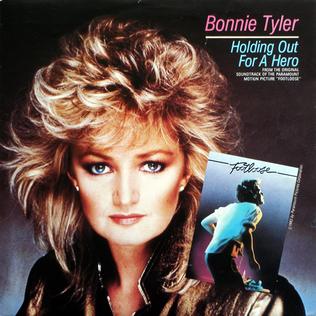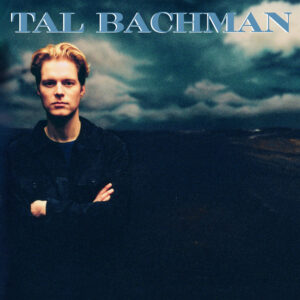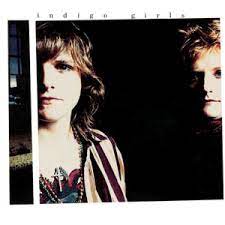June 16, 2025
As Long as There are Stars Above You
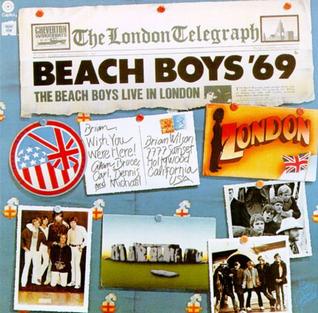
When I was little, any time I spent not wondering just what exactly was going on on Meat Loaf’s Bat Out Hell album, I was likely listening to The Beach Boys, and understanding everything. And I don’t mean it as a rebuke to Brian Wilson’s talent and genius that his music managed to speak to me on a visceral level when I was a toddler—lines like, “There’s a world where I can go/ And tell my secrets to/ In my room.” “Wouldn’t it be nice if we were older, then we wouldn’t have to wait so long?” “I’m getting bugged driving up and down the same old strip” [on my Big Wheel]. The Beach Boys sang songs about being true to your school, about wanting to go home. “And we’ll have fun fun fun til her Daddy takes the t-bird away.” When The Beach Boys sang, I felt like they were telling my story, even though I was landlocked in the middle of the continent and still years away from a driver’s license, with no understanding yet that a t-bird was not, in fact, a kind of bird. Or even what a bushy blonde hairdo looked like.
When I was little, I thought The Beach Boys was this obscure band that only me and my family knew about, their music playing on the boombox we had on our boat. I remember mentioning them once to one of my contemporaries—I was about six at the time—and her correcting me: They were called the BEASTIE boys. But not at my house they weren’t. My very first concert was The Beach Boys live at Copps Coliseum in Hamilton, Ontario, when I was about six years old, though I don’t think Brian Wilson was touring with them by then. When they returned to the pop charts in 1998 with “Kokomo” on the soundtrack from the movie Cocktail, we were ecstatic. I can’t help but think that a small part of the reason I’ve never done drugs is because “Drugs” was always the explanation my dad gave me for the more unlistenable Beach Boys songs, compared to their lush tones and gorgeous harmonies. I mean, what if I did LSD and ended up trapped inside “The Elements: Fire (Mrs. O’Leary’s Cow)”?
The Beach Boys would also make way for my own adolescent zeitgeist, the harmonies of Brian Wilson’s daughters, Wendy and Carnie, along with Chynna Philips, whose songs are as much part of my musical DNA as their parents’, underlining the dadness of it all. So it seems fitting to have passed Father’s Day this year thinking about and listening to Brian Wilson, who died just a few days before. He was the dad’s dad, and his good vibrations will keep on vibrating even now that he’s gone.
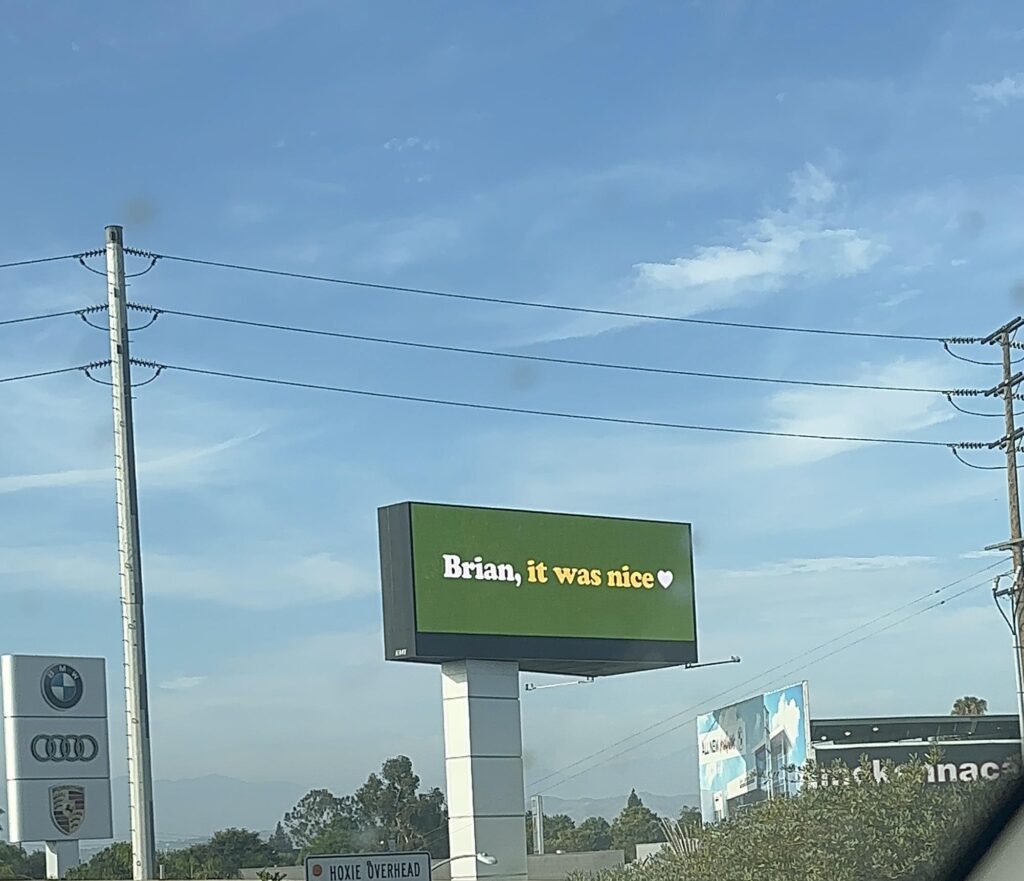
April 8, 2025
25 Years of Dar Williams; or I am the One Who Will Remember Everything
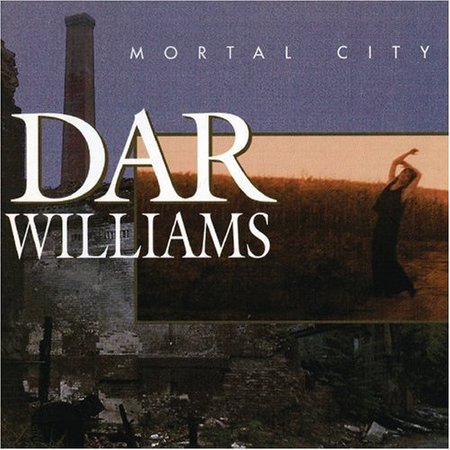
In the 1990s, interesting culture circulated via scenes, and zines, underground movements, and pre-internet online communities, and I didn’t know about any of it. Everything I learned about culture in the 1990s I learned from the movie Reality Bites and from pop-culture phenomena my best friend brought home to us from her all-girls summer camp, so I only knew about Lisa Loeb, smoking, the Gap, Ani DiFranco, and flared jeans, and imagined that was enough to built a life upon. Until the internet arrived in 1997 or so, expanding my universe infinitely, though not quite at the start when the internet was still fundamentally unorganized, the only really worthwhile thing I could think of to do there was to log onto random chat rooms and start talking to strangers.
I can’t remember now how I located these chat rooms, how I would have vetted them to discern if they’d be delivering me a salubrious experience, but I was also 19, and not all that discerning. My username was HitMeBaby1MoreTime, so you can probably tell. I actually didn’t get up to this kind of activity all that often, because meeting strangers on the internet was still perceived as fairly embarrassing in mainstream culture, for good reason too, because every time I did so, I’d end up talking about sex, but sometimes life was boring so what else were we to do?
Anyway, I met someone, a philosophy major who lived in the wilds of Iowa and we fell in love, as you do over text when you’re 19 years old and full of angst and longing, and we confessed such longing, and he mailed me a copy of Still Life With Woodpecker, which I thought was oh so romantic, and we exchanged photographs, and I knew that our love was different and extraordinary, though tried to be cool about it in a Tom Robbins fashion, and I kept listening to the Dave Matthews band’s “Lover Lay Down,” and he started emailing me less, and I started making out with my co-workers, and it was 1999, the year with the greatest soundtrack, and soon our undying love died and that was mostly fine.
But I wouldn’t let it go, and the internet enabled me not to do so (the internet is the opposite of closure) and there were search engines by then, so I could keep tabs on the guy, just to see that was he was out there and what he was up to, and he was friends with this woman who had a blog and wrote about music, in addition to writing stories in which he was a character, and it was from her that I first heard of Dar Williams, who had a song called “Iowa,” which brought it all full circle. And by this time, in addition to search engines, we also had Napster, so I could go listen to that song called “Iowa” myself, and unlike anything by Ani DiFranco, whose songs I never liked as much as much I wanted to like them, that song, and all Dar Williams’ music, felt like it had been directly tapped into my soul.
I’ve never been as sad and yearning as I was when I was in my early 20s, so much unrequited love and undelivered feelings, which swirled around my bloodstream in a crazy-making fashion, but Dar Williams felt like a channel for it. She had a sense of humour too, and I appreciated that, that she didn’t take herself too seriously all the time, but that she also knew the tragedy of wanting, and also of February, which could sometimes be so long that it lasted into March, and people who didn’t know how much I adored them.
I didn’t have Napster at home, only at the office where I was a section editor of our college newspaper, so I bought Dar Williams’ CDs (and of course I bought her CDs; I was always buying CDs; a CD was a piece of the world and I could hold it in my hand). Mortal City was my favourite, and I listened to it over and over in my final year at university, 2001/02, a funny year spent in the shadow of a terrorist attack whose ramifications would still be going on by the time I was entering my late 40s (and beyond?), and also on the cusp of the rest of my life. “Once I had everything, I gave it up/ For the shoulder of your driveway and the words I’ve never felt/ And so for you, I came this far across the tracks/ Ten miles above the limit and with no seatbelt, and I’d do it again.”
In 2002, after going through some real things, I took my CDs away with me to England, a huge book of them, taking up most of the space in my backpack, and a few months after I got there, I fell in love with a boy who loved me back and was my match in all the best ways. On Saturdays, we’d wander around the city centre, and flip through CDs together, even though our tastes weren’t identical. Dar Williams released The Beauty of the Rain in 2003, her first new release since I’d become a fan, and once again it felt like we were in sync, with songs like “Farewell to the Old Me,” and “The Mercy of the Fallen,” and songs of love that was actually requited: “I Have Lost My Dreams” and “The One Who Knows.”
I went to see Dar Williams in Sheffield that year, which was about an hour on the train from Nottingham, where I was living at the time. I can’t remember how I’d even heard about the show, or from where I got the wherewithal to plan the journey—I didn’t have the internet at home or work, and would visit the library a couple of times a week to use it—but maybe it was easier to be proactive before I’d come to take for having access to the world in my pocket via a smartphone. I went to that concert all by myself, and I can’t fathom it now—having no phone and navigating a strange city and taking the train home again in the darkness. My boyfriend didn’t come with me, and it’s possible I didn’t even mind that much, because our lives were not so connected then, I’d been independent enough to move across the world on my own, and my love of Dar Williams had always been something of a solitary pursuit anyway. Apart from the blogger who didn’t know I existed who’d been a friend of my internet boyfriend, I didn’t know anyone else who was a fan.
In 2005, my non-internet boyfriend and I got married, and moved back to Toronto, and I enrolled in Grad School, which, much like my early 20s, was more full of hardship and longing than I’d been hoping for, and Dar Williams released her album, My Better Self, which was the last Dar Williams album I’d get deep enough into that I would know every song, and I listened to it when I was sad about school, which it turned out I wasn’t very good at, though I think it was there that I learned the word “hegemony,” which Dar Williams rhymed with “enemy” on a song on the album. I loved her song “Teen for God” and this was a real Bush-era album, really. I loved her cover of “Comfortably Numb.”
In 2009, I went to see Dar Williams at The Mod Club when she was touring her album “Promised Land,” and my husband came with me, now ashamed for having left me to make my own way to Sheffield back in 2003. It was a fun show, and I was pregnant, just a few months away from becoming a mother. She returned to Toronto in 2011, and I had this idea that I’d gone to see her then too, but I can’t find any evidence that this ever happened. She released “In the Time of the Gods” in 2012, and the stories in her songs had drifted far enough that I couldn’t quite catch them anymore, couldn’t hold them and feel them as viscerally as I’d felt the stories she’d written in her own 20s and released on her albums in the 1990s. I did particularly appreciate one line from her song “I Am the One Who Will Remember Everything,” however, as my own life was wrapped up on the wonder and experiences of my own small child “Oh come over here, kid we’ve got all these books to read,/ With the turtles and frogs, cats and dogs who civilize the centuries,/ And in a world that’s angry, cruel and furious,/ There’s this monkey who’s just curious,/ Floating high above a park with bright balloons.”
Last Saturday I went to see Dar Williams again at Hugh’s Room’s new location on Broadview Avenue. And once again, my husband came with me, in atonement for Sheffield more than 20 years ago now, and we had a great time, and were surprised that almost everyone else in the audience was old. I sat beside a woman called Barb who lives in my hometown, directly across from my high school, and it felt a bit like a Dar Williams song, as did reflecting on how I came to love her music like I do. I listened to those songs, and felt like I was listening to my history, especially “As Cool as I Am” and “Iowa,” which we sang along to at her encouragement, and all the people whom I’d ever been came in on the chorus.
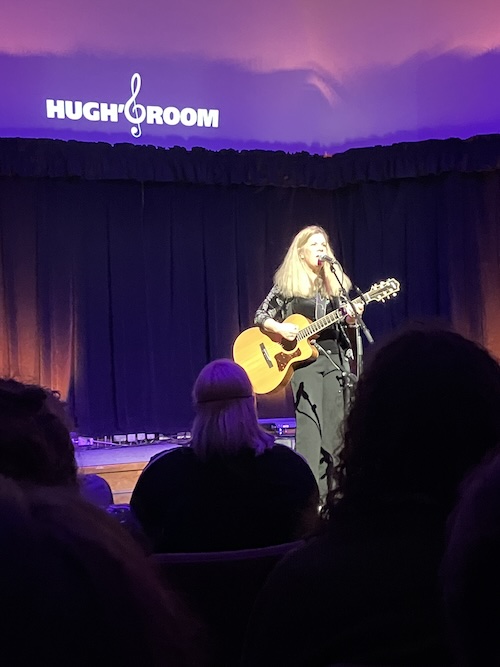
March 18, 2025
Three Musical Notes
- Am currently being haunted by “Holding Out for a Hero” by Bonnie Tyler. I’m not mad about it. We watched Footloose on DVD a couple of weeks ago, and my kids were struck by the wonderful weirdness of Kevin Bacon dancing in a warehouse (especially after having watched Jennifer Beals dancing in a warehouse just a couple of weeks before that in Flashdance, albeit one that’s post-industrial). A few days later, I danced around our living room to the song’s very dramatic Steinmen-esque opening imagining that I was Kevin Bacon, until I ran out of breath about 45 seconds later. Later that day my kids were out and heard “Holding Out for a Hero” playing at the grocery store. The next day, it was playing at the pool where I was swimming. Today it was playing in the background of a stupid casino ad I was served on a podcast. I can’t wait to hear it next. Truly, the lyrics have never felt so resonant, though that might just be my daddy issues talking.
- I have spent over 40 years confused by the song “Our House” by Madness, and how exactly their house was in the middle of the street, which always seemed really dangerous. Eventually, I reasoned that they likely resided in the kind of flatiron structure that turns up in English movies like Bridget Jones Diary and Spice World, and truthfully—after now having spent a fair bit of the time driving in the UK, where houses turn up in the middle of streets all the time and the roads have to be routed around them, and where you might stand a good chance of knocking off your side mirror one somebody’s front room window sill—it almost made a kind of sense. But now I’ve just informed that “our house in the middle of our street” actually means that the house is just in the middle of the row of houses on the street. Like, “Our house is halfway down the block.” I was disappointed; doesn’t that just sound incredibly dull? My husband (who was correcting me on all this) responding that the rest of the song isn’t terribly interesting either, with lines like, “Our mum she’s so house-proud/ Nothing ever slows her down and a mess is not allowed.” Which, I guess, is why they brought in horns, to liven the whole thing up a bit.
- I have only ever been bored by the song “A Girl Like You,” by Edwyn Collins, which was all too ubiquitous after showing up on the 1995 soundtrack to the movie Empire Records, and I never listened close enough to consider there might be anything interesting about it. Also, wasn’t Edwyn Collins just some old guy, in my mind tainted by his association with Phil (who was actually no relation)? This question and other misconceptions are considered fascinatingly in the latest Bandsplain podcast, whose biggest twist continues to be that I can listen so avidly to a conversation about a song I don’t even like, or at least I thought I didn’t like it, but now I do.
November 12, 2024
Heartbreak is the National Anthem, by Rob Sheffield

“The Eras Tour is a journey through her past, starring all the Taylors she’s ever been, which means all the Taylors you’ve ever been.” —Rob Sheffield
The first time I heard Taylor Swift, it was 2009 and I was driving a rental van to The Junction to pick up a secondhand (recalled) drop-side crib I’d bought off Craigslist for my six-week-old baby, and “Love Story” came on the radio, and I just loved it (that bridge! That key change! How it recalls Katie and Tommy on the old porch watching the chickens peck the ground!).
Although Swift would remain otherwise peripheral to my experience for a while longer, until my daughter (by then 6) arrived home one day from daycamp reporting a song called “Bad Blood” that she’d overheard kids singing, and wanted to hear more of, and there was no going back after that (which was fine, because who doesn’t need a little music in our minds saying “It’s gonna be alright”?).
We’ve been a crew of Swifties ever since, mishearing the lyrics to “Blank Space,” going back to turning “Red,” being unsure about “Reputation” but eventually won over, leaning into the cringe on “Lover,” being rescued from pandemic doldrums by the magic of “Folklore” and “Evermore,” wondering about the auto-tune on “Midnights” and belting out the killer tracks on “TPD.”
And while we did not win the ticket lottery for her Eras Tour in Toronto, I am leaning into the shimmer of #Tayronto this month in lieu of more dreadful things I could be paying attention to, and part of that project was anticipating Rob Sheffield’s HEARTBREAK IS THE NATIONAL ANTHEM, a fun and engaging journey through the weird, wonderful, over-dramatic and TRUE world of Swift’s music and her remarkable career.
“Champagne Problems” was playing in the donut shop when I took this photo. Taylor Swift is omnipresent, and neither she nor I would have it any other way.
October 16, 2024
Love is a Mixtape
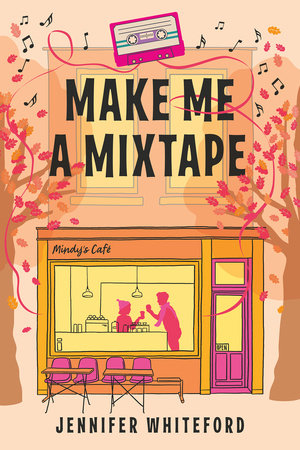
At the turn of the century, almost all of the romantic love I had to give was unrequited, and the only problem with that (in retrospect) was that I never got to realize my dream of having a boyfriend come along to digitize my vast collection of mixed tapes, and then burn them onto CDs. And I suppose I could have done like Dalloway and digitized the mixtapes myself, but I didn’t have my own internet connection back then, let alone a CD burner, and besides, it used to take entire afternoons to download half a song, and burning a CD could take even longer, and the only people with patience for such projects were the kinds of emotionally stunted, technically-inclined dorks that I tended to have crushes on, and none of them ever cared about me enough to do so.
So my trove of mixtapes was lost to time, from “Britt’s Mix 93” to the ska tape our friend Laura made in 1997, that very random tape I made in Grade 10 that went from April Wine’s “I Wouldn’t Want to Lose Your Love” to Alannah Myles’ “Lover of Mine,” and that most iconic Summer of ‘99 tape whose Side B began with Sophie B. Hawkins’ “As I Lay Me Down” to Mariah Carey’s “Always Be My Baby” (and “Angels” by Robbie Williams in there somewhere).
And yes, it’s true that if any of those CD burner-owning boys I’d fancied had ever managed to love me back, the attraction might have petered out around the time they discovered the extent of my affinity for soft rock. The one guy I did go out with during this period didn’t have a CD burner either, but when I gave him a tape that included Heather Nova’s “London Rain (Nothing Heals Me Like You Do),” he was really mean about it, which should have been a red flag—nobody puts a track from the Dawson’s Creek soundtrack in the corner. (Full disclosure: his mixtape for me was really cool, introducing me to music I love to this day, but he was not very nice in the end.)
Mixtapes, for me, in the 1990s, were almost like a scrapbook, compiled in real time. My Sony Sports Walkman was always nearby, and I’d be listening to the tape-in-progress, removing the tape from my deck only to add to it, taping something off a friend’s CD, recording a song off the radio, or from somebody’s parents’ record collection. And then once the tape was complete, it would be titled and dated, a record of time, much of the music not actually contemporary, assembled by chance, but that would become my soundtrack as I made my way through the world, foam headphones ever-present on my ears (at least until I stepped on the headset and broke it, which happened all the time).
My husband never made me a mixtape. We met in 2002, and he’d already embraced the future, a never-to-be-obsolete technology called the minidisc (ha ha) and he brought me on board, for which he still regularly apologizes. He must have made me a mix-minidisc, but I don’t remember what was on it, mostly because there was so much else going on at the time, our separate lives converging, the beginning of forever. In 2005, under the impression of an iconic ad, we each purchased an ipod shuffle (catchphrase: “Life is random”), which was the start of the end of our relationship with physical media (although we still own an entire shelf unit of CDs).
But the ipod shuffle would not be the the end of us sharing music together, on road trips, in the kitchen doing dishes. My husband has a Spotify playlist called “The Kerry List” that is 2 hours and 26 minutes long, specially curated at the intersection of our tastes, and while there’s no Mariah Carey, every single track is one that makes me exclaim, “Tune!” at the opening strains, and to me there is nothing more generous.
Including “London Rain (Nothing Heals Me Like You Do).”
Love is a mixtape, indeed.
February 7, 2024
She’s So High
The podcast I love more than any other is 60 Songs That Explain the ’90s, hosted by Rob Harvilla, author of my all-time favourite piece of music journalism, “How “Summer Girls” Explains a Bunch of Hits—and the Music of 1999.” (I wrote about my ongoing obsession with “Summer Girls” last year. It continues to be ongoing.) I started listening to the podcast—which is now into more than 100 songs that explain the ’90s, but let’s not be pedantic about it—with the Natalie Imbruglia “Torn” episode, featuring Sophie B. Hawkins as a special guest, and it continues to delight and make me reminisce and also make me think.
Last week’s episode, on “Iris” by the Goo Goo Dolls, in particular. And not just because it talks about working in retail while the Goo Goo Dolls play, and I did once indeed have a job folding t-shirts while “Black Balloon” played and articulated all my longing. (There was so much longing. I was twenty years old.) But also because the episodes are never just about one song anyway, and this one delves back to the movie High Fidelity, and how podcast host Rob used to take it as a compliment when people would tell him that he was a lot like the Rob in the movie. He used to think that guy was cool, and so did I (he was played by John Cusack after all). But. “High Fidelity is a horror film disguised as a rom-com,” says Rob Harvilla, and so was my idea of romance, to be honest. Informed by many John Cusack films, but also pop music in general.
“She’s So High,” by Tal Bachman, is the song Harvilla uses to articulate the problem of how women as love objects are presented in popular music. The point of existing as a woman, as per that song, and so many others, is to be out of some sad guy’s league. “Songs Sung By Sad Boys Who Dug Themselves into Mopey Bottomless Pits Singing Up at Fantasy Girls Marooned On Impossibly High Pedestals,” Harvilla explains.
Indoctrination into this culture in the 1990s meant that I thought romantic love meant some sad sack guy with an acoustic guitar who seemed to worship me in the most solipsistic manner possible. It means that it never occurred to a lot of sad sack guys that women were actual humans with multi-dimensions and struggles of their own. It meant that it seemed very reasonable for me to have relationships with men who were distinctly not excellent, because it was part of my job description to be “high above him.” In fact, it was my job to fix him, to save him, to exalt him above his own mediocrity. And that he would somehow be more authentic than other people for not even bothering. Romance was Ethan Hawk as Troy in Reality Bites telling Lelaina Pierce, “I’m the only real thing you’ve got.” It would never occur to me that I might possibly meet someone who could add to my own life, who could make my own world bigger and better. That the standard could possibly be meeting someone as smart, as passionate, as wonderful as I am. What it could really mean to meet my match.
The bar was low in the 1990s. I love the song “Head Over Feet,” by Alanis Morisette, but what does it mean that some jerk got an entire ballad written about him on the basis of the fact that “You ask how my day was”?
I had no choice but to hear you
You stated your case, time and again…
April 24, 2023
There Was a Good Man Named Paul Revere
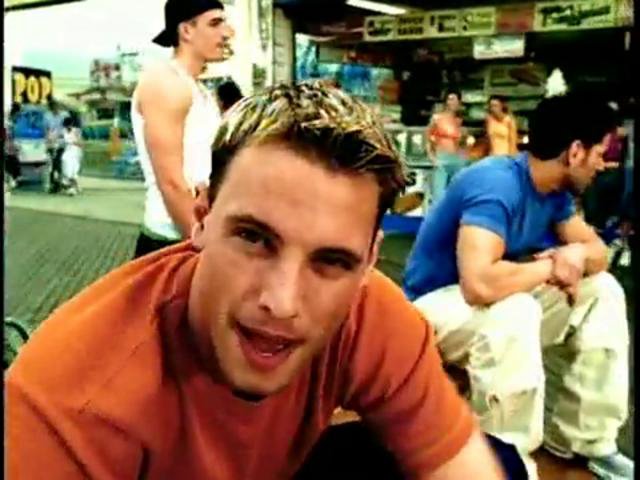
On Friday evening, a raccoon got into my kitchen. (Not for the first time; also this was not the only raccoon intruder in the neighbourhood this weekend!). And whenever I told anyone about it, they’d ask how the raccoon got in, and I would reply, “It came in the door…” And then I’d have to resist the impulse to finish off the sentence with, “I said it before/ I think I’m over you, but I’m really not sure.” Which is a problem much more rare than Toronto raccoons are, which is that I am absolutely obsessed with the song “Summer Girls,” by LFO.
And the weird thing about this is that everyone else isn’t. I don’t get it. A few years ago, back when Twitter was not a terrible place, I shared my shocking discovery that two out of the three members of LFO (aka, “The Lyte Funky Ones,” whose “Summer Girls” was pretty much a one-hit-wonder in 1999, though they tried hard to follow it up) had died of cancer. Because what kind of a statistic is that? Cancer, robbing the world of 66% of the ones who were lyte and funky, and now there is just one. The Lyte Funky ONE, and I partook in such banter with exactly TWO people, and it seemed like nobody else on Twitter cared about LFO, or even remembered the song at all.
But the lyrics to that song are wired to my brain in a way that I just can’t kick, and I don’t even want to. Which is kind of ridiculous, because the lyrics are so random and weird, but unbelievably catchy, and I just can’t help walking around the house muttering lines like, “Call you up, but what’s the use?/ I like Kevin Bacon, but I hate Footloose.”
Part of the problem is that I have two amazing daughters, and so it comes up a lot, a line like, “You’re the best girl that I ever did see.” Multiple times a day, I’m not even kidding, to which my children reply, without missing a beat, “The great Larry Bird, Jersey 33!” And HOW can I not follow that up with, “When you take a sip, you buzz like a hornet, Billy Shakespeare wrote a whole lot of sonnets”? Not a single one of which I can recite, by the way, and yet I know all the words to this bizarre and remarkably song in which “hornet” and “sonnet” rhyme!
When I do online yoga classes, I’m sometimes instructed to “shake and wiggle,” which puts “Summer Girls” back in my head yet again...as if it even needed planting: “In the summertime, girls got it goin’ on/ Shake and wiggle to a hip hop song.”
And I don’t know a better expression of love than telling somebody, “There was a good man named Paul Revere/ I feel much better, baby, when you’re near.”
Stayed all summer, then went back home
Macaulay Culkin wasn’t home alone
Fell deep in love, but now we ain’t speakin’
Michael J. Fox was Alex P. Keaton
I honestly don’t understand why any other song has to exist!
I am not the only person who has thought quite extensively about this song, and Rob Harvilla “How ‘Summer Girls’ Explains a Bunch of Hits—and the Music of 1999” was such a joy to encounter, explaining a lot about just how this song has been running through my brain for almost 25 years. (The summer of 1999 was one of the most vivid and insane periods of my life, and I remember every song that was ever on the radio, which was this one, and “I Want it That Way,” by the Backstreet Boys, and “Living’ La Vida Loca,” and “If You Had My Love,” my Jennifer Lopez, and and and, and Harvilla does a formidable job summing up the absolutely bananas musical year that ’99 was.)
I had never heard of Abercrombie and Fitch until that song, whose video had a similar vibe to “Steal My Sunshine,” by Len, and we all watched videos then, and I put my hair in cute pigtails and wore tank tops and aspired to be admired by boys with frosted tips.
One day I’m going to be old and senile, and just repeating these lyrics on a loop.
Boogaloo Shrimp and pogo sticks
My mind takes me back there oh so quick..
December 9, 2022
Reason to Believe

“I still love this song, but I no longer live in it,” is something I texted my friend Marissa this morning about the Counting Crows song “A Long December,” usually on constant rotation for me around this time of year. But last night I’d realized I’d made it eight days into December without listening to it once, and it occurred to me even that this is the first December in a very long time in which I’ve not been desperate to believe that “maybe this year will be better than the last.” That I’m not listening to those lyrics with the same sense of abject sense of loss and longing that characterizes every Counting Crows song, but this one in particular. And the feeling that it’s all a lot of oysters, but no pearls
I’ve written before about how my mental health was at a breaking point a year ago, and I entered 2022 resolving to do things differently, to learn to be okay even when things weren’t okay, which was a perfect resolution for 2022, really, a year of a lot of not-okayness. And I’m not saying I’ve managed it with aplomb—the first six months of this year were really hard for me and I struggled a lot, and still do here and there—but I certainly have learned a thing or two about how to manage this, how to be okay in the midst of uncertainty, how to keep myself steady when the world’s falling apart, when “the winter makes you laugh a little slower/ Makes you talk a little lower about the things you could not show her.”
What I have learned is that value judgements such as “worse” or “better” are ideas, and that reality is reality no matter how you frame it, and that leaning in closer to that reality and how it makes me feel instead of my ideas about it—what’s good and bad, worse or better—is how to live more fully and with less anxiety. That a year is a year, and also a year is a lot of things running a spectrum from wondrous to horrible, and this one—while far from easy—has been better than the last mostly because I’m finally figuring all this out.
The reason I thought about “A Long December” last night was because Christa Couture re-shared a link to her New Year’s song “To Us” last night, a song that started off my new year, and whose message was what I needed instead of Adam Duritz’s maudlin tones:
No I’m not one to tell you, hon, “we’re in the clear”
Of course we might be, but here’s the rub:
Probably not this year
So happy new year to resentment, to enjoyment, disappointment
To all the best laid plans we won’t pull off
Happy new year to the weary, to fury, and recovery
To that which doesn’t kill us that makes us soft…
April 28, 2022
Tunes
The song on constant play in our house right now is this one, by George Ezra, which we got into while driving our little electric car along the motorways of northwest England last week. It turns out that George Ezra is already very popular, so my efforts at discovering an obscure indie artist are all for nil, but it’s still such a fun song, and I’ve come to love his others too.
November 29, 2021
Smarter Than the Tricks Played on Your Heart
I’ve spent the last six weeks revising my third novel, which is actually my second novel, written between Mitzi Bytes and Waiting for a Star to Fall. A novel that, like the others, has a soundtrack, but with a twist—this one’s soundtrack is actually good! And how it came to be has been, I think, such an interesting and organic journey.
Beginning as I was brainstorming potential titles, and “Power of Two” by The Indigo Girls kept occurring to me, because my novel is the story of a long friendship and that song’s title, as well as many of the ideas contained within, are just perfectly fitting.
Before my latest draft, the single musical reference in the book had been to another Indigo Girls song, “Love’s Recovery,” misheard lyrics from the CD player in my characters’ kitchen where such music is perpetually playing. (Now there is so much more, and it includes Dar Williams, Tracy Chapman, Ani Di Franco, Lucinda Williams, and an opaque reference to Sarah Harmer’s gorgeous “Lodestar,” which I am OBSESSED with at the moment. It’s a 1990s female singer/songwriter GOLDMINE.)
And just last week as I was writing a new chapter, it occurred to me that my immediate task at that moment was writing a line that expressed the pivotal question from the Indigo Girls’ song “Mystery”: “And if it ever was there and it left/ Does it mean it was never true?”
Not even consciously, I’d been drawing on stories and ideas from their lyrics, songs that I’ve been listening to for almost thirty years.
As a woman who came of age in the 1990s while strumming basic chords on an acoustic guitar and singing in harmony with my best friend, The Indigo Girls have always been important. I’ve seen them live at least twice. Their “Romeo and Juliet” was my only “Romeo and Juliet” for so long, same with “Tangled Up In Blue.” Before I really ever thought very much about queerness, there was still Emily and Amy, who were both gay, we knew, but not a couple, which we hetero teens were always struggling to get our heads around. They were partners, friends. And because of the place and time in which they were coming up in the industry (they were from the American South; they lost out on Best New Artist Grammy Award in 1990 to actual Milli Vanilli) they sang love songs, but couldn’t be explicitly gay about it (kind of like my cousin who always brought a “friend” to Christmas dinner) which sucks, but it also means that growing up, I was privy to the most textured, nuanced and artful portrayals of I’ve always immediately perceived as platonic friendship.
Um, though clearly I was missing several signs, of course. Just what WAS the singer’s hand doing on the subject’s knee “Five miles out of the city limit” after all?
But intense friendship is very physical too, particularly when you’re young, as I expressed in my novel. Lots of bed-sharing and clothes changing, and hugging, and holding hands. Sure, I missed the signs, but so many of them were part of my own experiences of being with my friends. So maybe I was more solipsistic than ignorant.
(Maybe there is no maybe about it.)
How lucky were we to grow up against an Indigo Girls soundtrack, to find a place for ourselves inside their gorgeous harmonies? Their songs like tiny epics that I could use to understand my own connections to other women, to my best friends. How much it managed to articulate all my teenage longings, which seemed somehow inexpressible, beyond understanding, and there it was, all that wonder and amazement, pleasure and pain:
I could go crazy on a night like tonight
When summer’s beginning to give up her fight
And every thought’s a possibility
And the voices are heard but nothing is seen
Why do you spend this time with me
Maybe an equal mystery
